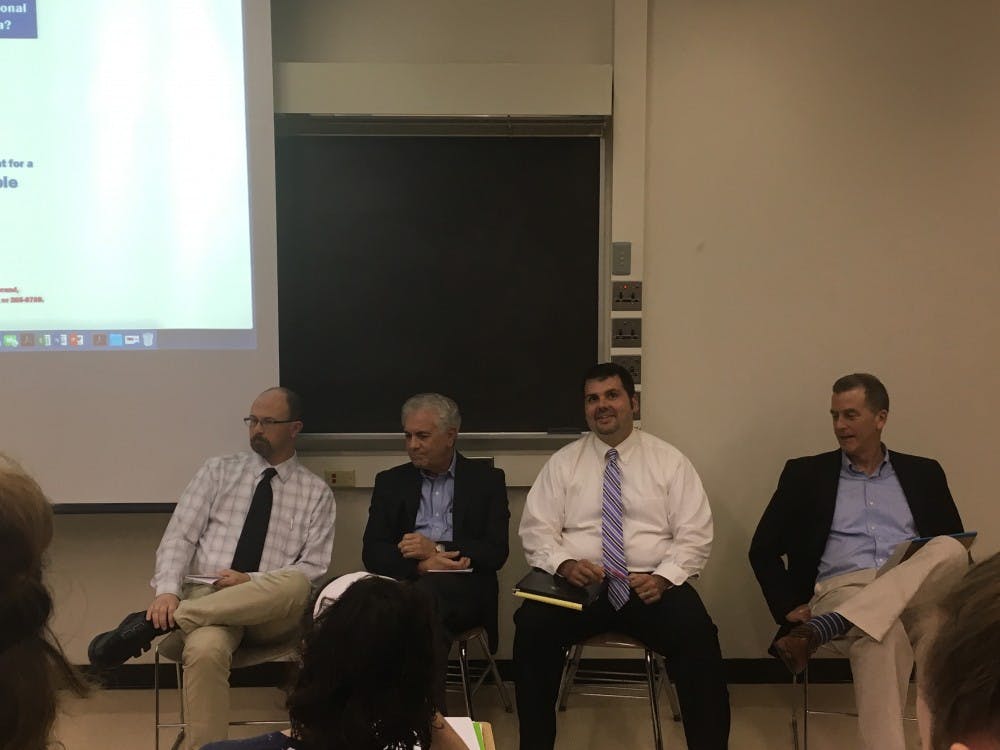The same panel will host a post-election panel discussion to discuss the results of the election at 3:30 p.m. Nov. 17 in Burkhardt Building Room 101.
With only a couple days until the 2016 presidential election, political science professor Gene Franklin approached fellow professor Sean Hildebrand with the idea of doing a pre-election panel discussion with the department.
As a result, Hildebrand, chairman of the political science department’s student programs committee, moderated a four-person panel Nov. 3.
“I figured the time would be talking about how big the margins might be and that kind of stuff, but it would still be something … but to answer questions from folks that are generally confused by what’s going on or don’t like what’s going on to some degree or don’t understand what could happen next,” Hildebrand said.
The discussion started with each panelist explaining how the election and candidates have gotten to this point.
“It doesn’t come totally out of the blue. We’re a country of millions of people and we’ve got two major political parties … those groups have some major differences between them,” said Daniel Reagan, chair of the political science department. “It’s not surprising that there were deep and very important differences within the GOP. Trump didn’t just create this set of circumstances and the circumstances that gave rise to his nomination didn’t like poof suddenly appear.”
The panel also discussed the Electoral College and third-party candidates.
“The two-party system has put almost a lockdown on access to the ballot," said legal studies instructor Brad Gideon. "That’s an issue that a number of third-party candidates for a very long time have talked about … that’s still one of the best gatekeepers for the two-party system.”
All four panelists think Clinton will win the presidency and stressed the importance of having people in swing states directly reaching out and talking to voters. As of Oct. 22, the Democratic Party employed 5,138 people in 15 states, while the Republican Party only has 1,409 employees in 16 states, according to The Hill.
Hildebrand hoped the panel was informative for students to show what is going on and what could happen after the election.
“There’s a lot of similarities [to past elections], which kind of gets swept under the rug by their personalities, but there are differences and that’s something that obviously should be discussed,” Hildebrand said. “We’ve always had scandals and stuff with presidential candidates … but to take it to the level it’s gone where just every day you’re sort of like, ‘alright what’s going to happen now?’ and then just listen to them shoot back at each other in such direct and negative ways. There’s always negative stuff but more direct and negative I think at least in our lifetime.”





